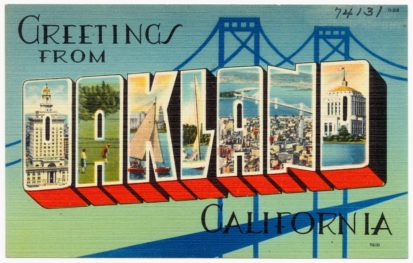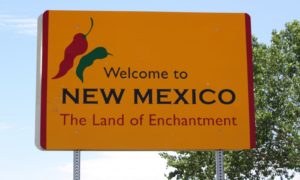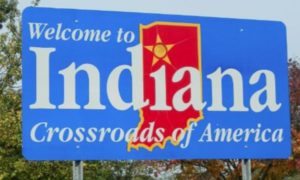California has 58 counties and 482 incorporated cities across the state, each with the option to create its own rules or ban marijuana altogether. In this California Cannabis Countdown series, we cover who is banning cannabis, who is waiting to see what to with cannabis, and who is embracing California’s change to legalize marijuana — permits, regulations, taxes and all. For each city and county, we’ll discuss its location, history with cannabis, current law, and proposed law to give you a clearer picture of where to locate your California cannabis business, how to keep it legal, and what you will and won’t be allowed to do.
Our last California Cannabis Countdown post was on San Franciscoand before that Sonoma County, the City of Davis, the City of Santa Rosa, County and City of San Bernardino, Marin County, Nevada County, the City of Lynwood, the City of Coachella, Los Angeles County, the City of Los Angeles, the City of Desert Hot Springs, Sonoma County, the City of Sacramento, the City of Berkeley, Calaveras County, Monterey County and the City of Emeryville.
Today’s post is on the City of Oakland.
Welcome to the California Cannabis Countdown.
Location. With a burgeoning nightlife, beautiful Lake Merritt, and a slightly more reasonable cost of living than San Francisco, there’s much to love about Oakland. But yes, losing the Raiders and the Warriors is going to hurt – perhaps another category for chronic pain and suffering?
History with Cannabis and Current Cannabis Laws. Ever since the voters of California passed the Compassionate Use Act in 1996 (Proposition 215), Oakland has been on the forefront of legalizing cannabis use. In 1998, the Oakland City Council passed Resolution No. 72516 C.M.S. in support of the Oakland Cannabis Buyers Collective when the federal government sued the collective (and five other entities) seeking an injunction to get the collective to cease distributing and manufacturing cannabis. By making an attempt to come to the aid of a medical cannabis collective, Oakland firmly signaled it would fight for Oakland residents’ right to medical cannabis. In November of 2004, Oakland residents passed ballot measure Z. Ballot Measure Z was a continuation of Oakland’s dual-pronged approach to cannabis: focusing on social justice reform and proper regulation. The ballot measure made citations and arrests of private adult cannabis use Oakland’s lowest law enforcement priority and set the groundwork for establishing a system to license, tax, and regulate cannabis. Oakland followed up Measure Z by enacting Ordinance No. 12694, which established a community oversight committee with the role of assisting the city council in fulfilling the objectives of Measure Z.
Medical cannabis dispensaries in Oakland are currently regulated under Title 5, Chapter 5.80 of the Oakland Municipal Code, which became effective in July of 2011 and was most recently amended on March 28, 2017. The City of Oakland — more than most California jurisdictions — has shown a willingness to assist those most disadvantaged by the disparate enforcement of cannabis laws. When Chapter 5.80 was amended in March of this year, the City Council sought to remedy the disadvantages faced by residents via an equity permit program, which provides as follows:
- Defines an equity applicant as one whose ownership has an annual income at or less than 80 percent of Oakland’s medium income adjusted for household size and has either lived in any combination of Oakland police beats 2X, 2Y, 6X, 7X, 19X, 21X, 21Y, 23X, 26Y, 27X, 27Y, 29X, 30X, 30Y, 31Y, 32X, 33X, 34X, and 35X for at least five of the last ten years or was arrested after November 5,1996 and convicted of a cannabis crime committed in Oakland;
- Allows Oakland’s City Administrator to issue no more than eight new brick and mortar dispensary permits per year, with half of those dispensary permits going to equity applicants;
- Allows applicants to apply for an onsite cannabis consumption permit;
- Allows for delivery-only cannabis dispensaries;
- Requires applications for cannabis dispensaries be subject to a public hearing.
Medical cannabis cultivation, distribution, testing, and transportation are currently regulated under Title 5, Chapter 5.81 of the Oakland Municipal Code, which became effective in July of 2010 and was also amended on March 28, 2017. Chapter 5.81 also included an equity permit program. Other of its highlights include the following:
- A collective or cooperative of qualified patients or primary caregivers may cultivate medical cannabis covering an area of no more than 250 square feet inside a residential unit or if in a nonresidential building on one parcel of land without a permit (subject to numerous operating standards);
- Allows for usage of both volatile and non-volatile solvents in manufacturing medical cannabis products;
- Permits facilities that hire and retain formerly incarcerated Oakland residents to apply for a tax credit or license fee reduction based on criteria established by the Oakland City Administrator;
- Mandates that no cannabis or cannabis odors shall be detectable by sight or smell outside a permitted cannabis facility;
- Allows for more than one medical cannabis operator to situate on a single parcel of land, however, each such cannabis operator must obtain a permit for its applicable permit category; and
- Requires cannabis cultivation and manufacturing applicants to obtain approval from the Alameda County’s Department of Environmental Health and its Department of Agriculture.
Proposed Cannabis Laws: On July 20th of this year, Oakland’s Cannabis Regulatory Commission met to discuss the ongoing implementation of the Equity Permit Program to see if it is accomplishing its goals. The Commission is also in the process of assisting the City Council with adopting a regulatory structure for the adult use of cannabis. Some of the issues the Commission highlighted for the City Council to review are the following:
- Whether Oakland will create a licensing category for micro-businesses. Under California’s Medicinal and Adult-Use Cannabis Regulation and Safety Act (MAUCRSA), a micro-business operator may act as a cultivator, retailer, distributor, and non-volatile manufacturer.
- Whether the Oakland City Council will limit or cap the number of adult use cannabis dispensaries?
- Whether to allow cannabis dispensaries to operate as both a medical and an adult use dispensary?
Link – Canna Law Blog





































